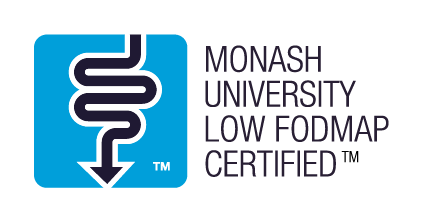 Fasting is nothing new, our paleolithic ancestors would have practiced it (unknowingly) whilst hunting and gathering food, Hippocrates advised fasting for healing and health in 5th century B.C and it’s also been a faith-based practice for centuries (1). No matter what marketing ploy health companies are using, fasting isn’t shiny and new...news flash: you fast overnight!
Fasting is nothing new, our paleolithic ancestors would have practiced it (unknowingly) whilst hunting and gathering food, Hippocrates advised fasting for healing and health in 5th century B.C and it’s also been a faith-based practice for centuries (1). No matter what marketing ploy health companies are using, fasting isn’t shiny and new...news flash: you fast overnight!
What is intermittent fasting?
This involves restricting your intake of food on certain days or within certain hours of each day with the option for more flexible eating (within reason) during non-fasting periods. Popular street names are the 5:2 diet, this is where on two days of the week you restrict yourself to 500 calories for women and 600 for men and the other days you eat (within reason) freely. Or the 16:8 hour fast which is 16 hours of fasting - the hours are up to you - and 8 hours of eating freely. For example, fasting from 7pm at night until 11am, then eating freely until 7pm.
Is intermittent fasting good for you?
Many studies (1,2,3) back that intermittent fasting has many positive health benefits, some of which may include:
- Lowered blood sugar levels.
- Improved insulin sensitivity.
- Increased metabolic rate.
- Increased satiety after eating.
- Decrease body fat percentage.
- Reduced inflammation.
It’s also thought that intermittent fasting may increase longevity and protection again certain diseases by reducing oxidative stress and the build-up of waste products, but more research is needed in this area. And of course, more human research is needed to understand the effects of fasting fully.
What are the negatives of intermittent fasting?
Of course - like anything - there are cons, and it’s simply not for everyone! Intermitting fasting may cause (4):
- Low energy/tiredness
- Lower body temperature
- Persistent hunger
- Changes to mood/irritability
- Overeating in non-fasting hours
Like all areas on science, there are studies that are for and against intermittent fasting. So, if a particular diet sparks interest, research should be done before you decide to try them out, so you can then make your case. Also, keep in mind that drastic change to your lifestyle may not be maintainable and lead to relapse.
What do you mean “eat freely?” How to eat on your non-fasting days
This doesn’t mean you go crazy and rummage your way through the whole fridge, it means to eat as you usually would throughout the day. You may naturally be eating less because you’re now having brunch or restricting intake on your fasting day, so when eating freely, it’s important to remember to eat nutrient-dense foods to ensure you are meeting all your nutritional requirements. This may also assist in weight loss as you may be making healthier choices.
What should I eat when I'm breaking my fast?
When fasting you may experience low blood sugar levels, so you may be inclined to reach for something sweet when your fasting is up. So have your first meal prepared and ready to go. This meal should be well-balanced with protein, carbohydrates, and good fats to help with your satiety. It's important you're consuming nutrient dense food (5), to ensure you are getting all your macro and micro nutrients throughout the day. Now that you're not fasting you can consume food freely, as you usually would. Check out our 5:2 and 1200 calorie bundles.
What can I have when I’m fasting?
If you are practicing the 16:8 diet during your fast you do not eat solids and can only drink zero-calorie liquids. You should keep up your fluids by drinking lots of water, you can also have hot tea and coffee without milk. During your fast in the 5:2 diet, you are allowed to eat up to a certain amount of calories. There are many apps like Noom or My Fitness Pal that can help you count these calories or give you a rough idea of what 500-600 calories looks like. Our Dineamic meals fit nicely into your fasting days with many meals being lower in calories.
Who should seek medical advice before trying fasting?
As mentioned above, fasting is not for everyone and this includes some groups of people. If this list below is relevant to you, you should seek advice from your doctor before you try intermittent fasting.
- Diabetics
- People with low blood pressure
- If you are pregnant or breastfeeding
- If you have a history with eating disorders
- If you have a heavily active job or high activity levels
Alicia McIntyre
References:
1. Effects of intermittent fasting on metaonlim in men Fernanda R. Azevedo 2012
https://www.sciencedirect.com/science/article/pii/S225548231370451X
2. Metabolic Effects of Intermittent Fasting Ruth E.Patterson 2017
https://www.annualreviews.org/doi/pdf/10.1146/annurev-nutr-071816-064634
3. Health Benefits of Isalamic Intermittent Fasting Pakkir Maideen 2018
http://eprints.mums.ac.ir/10388/
4. Intermittent Fasting - the science of going without. Roger Collier 2013
https://www.cmaj.ca/content/185/9/E363.short
5. Intermittent Fasting in Cardiovascular Disorders Bratosz Malinowski 2019
https://www.mdpi.com/2072-6643/11/3/673









